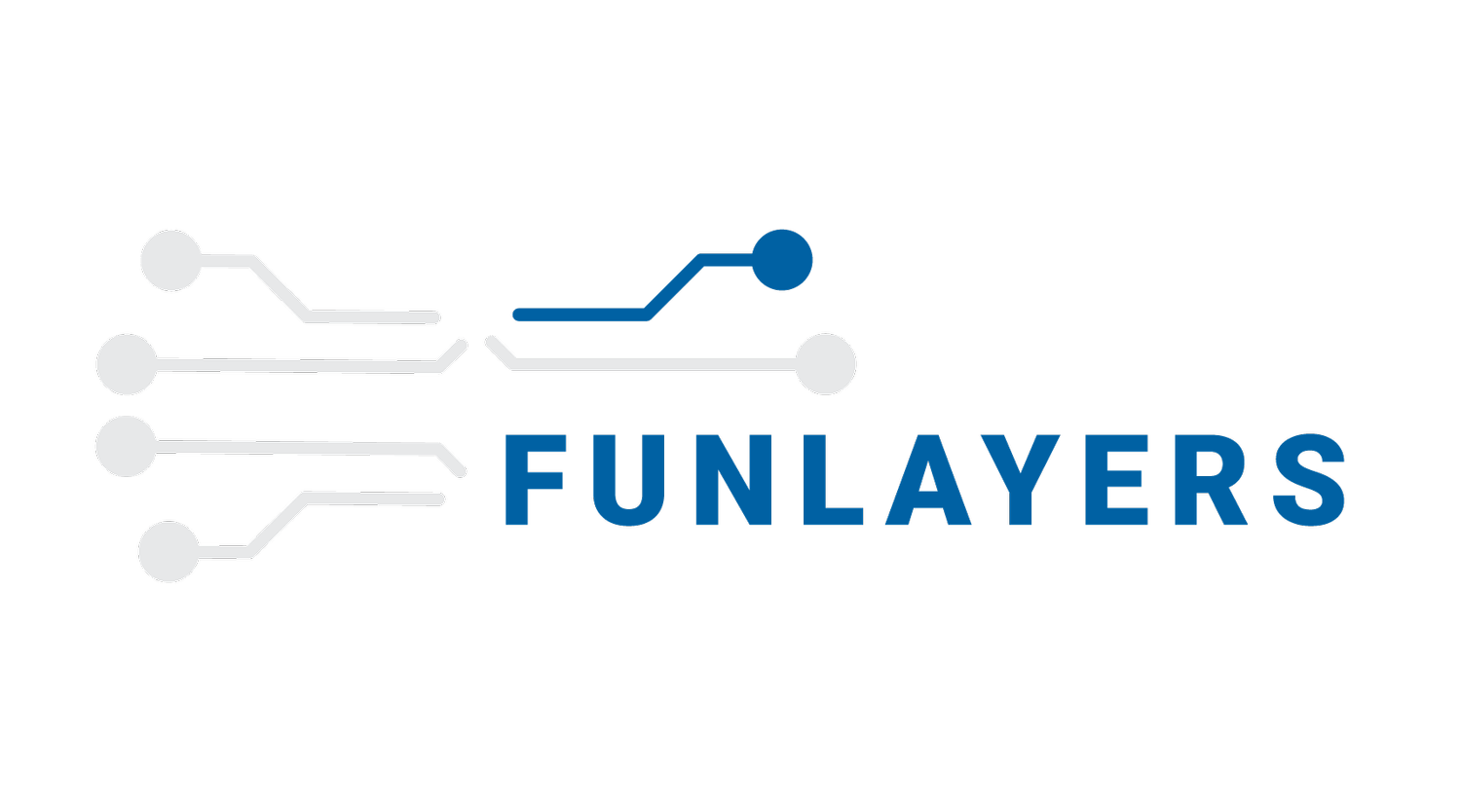
WS on Transferable Skills
September 9-12, 2024
INL - International Iberian Nanotechnology Laboratory
Braga - Portugal
Workshops on Transferable Skills
with
The FUNLAYERS Summer School programme includes a set of Workshops on Transferable Skills to enhance multidimensional skills crucial for PhD students and early-stage researchers.
The sessions complement the scientific component of the Summer School and explore relevant competencies in communication, management, business, networking, and others.
The goal is to empower participants with differentiating skills crucial for a broad job market, ultimately enabling them to carry out projects successfully, work more effectively, and benefit from various opportunities.
Programme
Science Communication and Outreach skills for PhD students: The Basics | 4h
o Module 1: Effective and Inclusive Communication (2h)
o Module 2: Building My Own Strategy for Public Engagement (2h)
Participants will learn about the importance of communicating knowledge to the public, reaching diverse audiences using inclusive language (first module), and reflecting on how to
define and improve their public engagement practice (second module).
Ethics in the Context of Responsible Research and Innovation | 3h
o Introduction to Ethics in the Scope of Responsible Research and Innovation
o Definition, principles, and Importance of Incorporating Ethics into Research Design
Guided Exploration of Ethics in Context of Nanotechnology Research: Facilitated discussion of case studies. Action Planning and Next Steps for Embedding Ethics in Nanotechnology Research: Initial practical next steps for promoting anticipatory thinking, public guided oversight, risk mitigation policies, and embedding ethical reflection.
Entrepreneurship for scientists: the basics | 3h
o Capacity building session on generating and developing entrepreneurial ideas.
Participants will be divided into groups and work on ideas to solve an identified problem/challenge. The goal is that participants not only work on concrete business ideas but also elaborate on those ideas and receive specific feedback.
in partnership with Native Scientists
Trainers
Joana Bordalo Joana co-founded and leads a nationwide science outreach and educational programme at Native Scientists based on the concept of Circular Education and on the Science Capital Teaching Approach. She is a Master in Science Communication with a background in Biology and Music. Joana was awarded a Fulbright/FLAD scholarship to join a Science Communication Department at the University of Illinois (USA). She previously integrated a European project that promotes gender equality at Técnico ULisboa (Portugal). Joana is committed to improving educational opportunities and reducing inequalities through her work. She loves traveling and has lived in three different countries. She is also a cellist and is passionate about Nature, which is why she lives in the Azores Islands.
Rita Gil Mata Rita is Senior Consultant in European Financing at Impact Funding Europe, a consulting company focused on implementing projects with strong concerns in terms of environmental impact, sustainability, circular economy, and energy. She has worked as Research Funding Advisor & Science Manager since 2005, in funding for research and innovation, and at national and international levels has supported more than 800 applications and has secured more than €18M. She has worked with public and private research organizations such as Universities, Research Centers and Non-Profit Associations, start-ups and SMEs. She has +18 years of experience in the management of funded projects, and consortium management, and since then she has been working closely with researchers to support them in acquiring project management skills, currently having more than 400 hours of training given in these areas. She is a certified and experienced trainer in topics such as Science Management, Proposal Writing, Open Science, Responsible Research and Innovation, Research Ethics and Integrity.
Pedro Resende In addition to being Chaperone Co-founder and Director, Pedro is a biomedical researcher at i3S. He has more than 20 years of experience in the Life sciences/Biomedical sector. Alumnus of University of Porto, Pfizer, Salk Institute, UCLA. Worked in three countries (Portugal, UK and USA) and experienced different roles in academia, industry, government and third sector. Pedro co-founded two academic associations and one startup, and also worked as External Consultant for the area of Innovation at the Ministry of Health, Portugal.
Planning your stay
We're excited to help you plan your trip. We've compiled a list of hotels for you to choose from, ranging from 5-star to 3-star.
BRAGA, A CITY OF BEAUTY AND HERITAGE RICHNESS COMBINING TRADITION WITH INNOVATION.
Braga was founded by the Bracari Celts, known in Roman times as Bracara Augusta. It’s located in the North of Portugal, in the Minho region, and has around 193,000 inhabitants. In terms of population, it’s the seventh-largest municipality in Portugal.
Braga is a vibrant city, full of culture and traditions, where the History and the Christian roots live alongside the technological industries and the academic world.
How to reach INL
-
The easiest way to reach Braga by air is to fly to Porto International Airport. Francisco Sá Carneiro International Airport is located 11 km away from the centre of Porto, in one of the country’s most important industrial and trading areas. It’s located 50 km (31 miles) away from Braga.
Visit the website here for more information.
From Porto Airport to Braga
By bus | After you arrive at the airport, you can travel to Braga by bus (GetBus). GetBus offers several options daily. It’s a non-stop transport from the airport to Braga’s Central Bus Station. Tickets can be bought online or directly from the bus driver.
Cost: 9,00€ (one-way) | 16,00€ (round trip ticket)
Duration: approx. 45 minutes.After arriving at the Central Bus Station in Braga, you can take a taxi or a TVDE to INL.
By taxi: the taxis are located on the arrivals floor of Porto’s Airport.
Cost: around 65.00€
Duration: approx. 45 minutesBy TVDE: Cost: around 45.00€ | Duration: approx. 45 minutes
By train: to catch a train to Braga, you first need to go to the city centre of Porto – Estação de São Bento or Estação de Campanhã. To reach the city centre, you can go by taxi/TVDE to one of the stations above or take the Metro – Line E (Purple) to Campanhã Station (Direction Estádio do Dragão). This metro journey will take about 40 minutes. The metro station is located just a 5-minute walk away from the airport.
Metro do Porto: http://en.metrodoporto.pt/
After reaching one of the train stations, you can take the train to Braga. The urban railway leaves every 40-45 minutes. These tickets must be bought at the ticket office inside every station or on the ticket machines. For faster trains to Braga, you can buy online at https://www.cp.pt/passageiros/en/buy-tickets and download the ticket.
Comboios de Portugal (Railway): https://www.cp.pt/passageiros/en/
Once you arrive in Braga, you can reach INL by taxi/TVDE, on foot (30-minute walk), or by bus.
There are two buses that you can take. On weekdays, number 43 (direction Universidade do Minho), and on weekends, number 2 (direction Bom Jesus). You can buy the tickets inside.
Cost of the bus ticket: €1.55Nr. 43 route: https://www.tub.pt/percurso/43/
Nr. 2 route: https://www.tub.pt/percurso/2/
-
If you decide to drive a car from Porto to Braga, you can choose either a route via A3 or A28.
You can find more information here.








